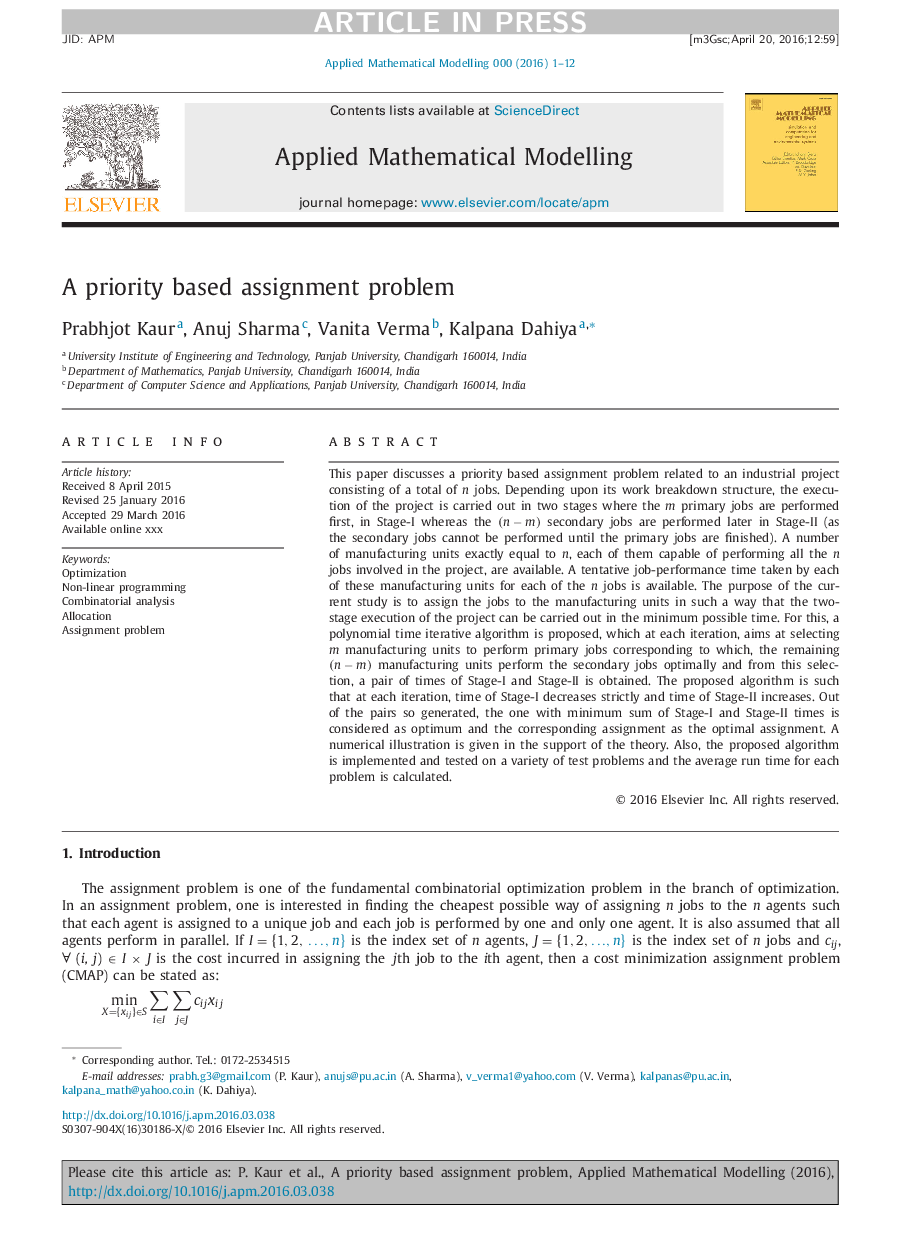| Article ID | Journal | Published Year | Pages | File Type |
|---|---|---|---|---|
| 5471322 | Applied Mathematical Modelling | 2016 | 12 Pages |
Abstract
This paper discusses a priority based assignment problem related to an industrial project consisting of a total of n jobs. Depending upon its work breakdown structure, the execution of the project is carried out in two stages where the m primary jobs are performed first, in Stage-I whereas the (nâm) secondary jobs are performed later in Stage-II (as the secondary jobs cannot be performed until the primary jobs are finished). A number of manufacturing units exactly equal to n, each of them capable of performing all the n jobs involved in the project, are available. A tentative job-performance time taken by each of these manufacturing units for each of the n jobs is available. The purpose of the current study is to assign the jobs to the manufacturing units in such a way that the two-stage execution of the project can be carried out in the minimum possible time. For this, a polynomial time iterative algorithm is proposed, which at each iteration, aims at selecting m manufacturing units to perform primary jobs corresponding to which, the remaining (nâm) manufacturing units perform the secondary jobs optimally and from this selection, a pair of times of Stage-I and Stage-II is obtained. The proposed algorithm is such that at each iteration, time of Stage-I decreases strictly and time of Stage-II increases. Out of the pairs so generated, the one with minimum sum of Stage-I and Stage-II times is considered as optimum and the corresponding assignment as the optimal assignment. A numerical illustration is given in the support of the theory. Also, the proposed algorithm is implemented and tested on a variety of test problems and the average run time for each problem is calculated.
Related Topics
Physical Sciences and Engineering
Engineering
Computational Mechanics
Authors
Prabhjot Kaur, Anuj Sharma, Vanita Verma, Kalpana Dahiya,
